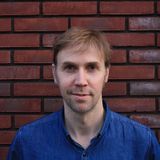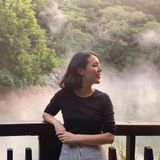In the new Designing Cities For All: RE-generation series ( Re)designing Connection , DCFA partnered up with Shibaura House , a community hub in Tokyo as its next fellow. In this fellowship, we delve into the multifaceted concept of connection on three different scales: humans & non-humans, communities and cities. Our modern urban existence led us to disconnect from ourselves, our communities, and the cities we inhabit. How can we reclaim and (re)design these connections through personal practices and grassroots initiatives? This series aims to explore practical strategies and innovative approaches for reviving the lost essence of connection on both individual and collective levels, fostering a more inclusive city for and with all.
In this 3rd episode of Designing Cities For All: Re-Generation series (Re)designing Connection with DCFA fellow Shibaura House we look into connecting cities against shifting neighborhood dynamics due to rapid urbanization. Previously we investigated the journey from individual connection to broader community engagement. In this last episode we will examine the potential for bridging urban disconnects and inspiring a reimagined sense of neighborhood and beyond. Discover how we can extend these intimate connections to reinvigorate urban spaces and encourage global unity.
About the DCFA Fellow
SHIBAURA HOUSE is a unique building with a completely glass exterior built in Shibaura, Minato-ku, an area in Tokyo, Japan undergoing redevelopment. It is a community space, but also the headquarters of a 70-year old company. The company’s business has changed enormously to keep in harmony with the changes in times and the social environment. Today, it simultaneously operates the original creative business, along with new cultural creative projects that are rooted in the local community.
About the speakers
Yinka Danmole is a cultural producer with expertise in delivering public realm projects and cultural programming. Yinka’s work aims to unlock the potential of people and places by creating fertile ground for artists, communities, researchers, and creative practitioners to realize ambitious projects that engage us with new perspectives. He has worked for several prominent cultural organizations, including Mediale, the Manchester International Festival, and Creative Black Country. During his tenure at these organizations, he has initiated, developed and delivered a number of high-profile programs and commissions. As an independent producer, he has developed exhibitions and creative programmes, including: Grow FM (2022), a public program of new commissions at Chiswick House and Gardens; the Thamesmead creative studio (2021-Present), a neighborhood collective commissioning public art for their local area; and Black South (2019), a music night and exhibition exploring the rituals of the Mardi Gras festival in New Orleans. Currently, Yinka leads the programming for Abandon Normal Devices festival and annual programs as the organization’s Creative Director.
Joop de Boer (1978) is co-founder of Pop-Up City (PUC), an Amsterdam-based creative agency for urban transformation and placemaking. PUC works at the intersection of concept development, tactical urbanism and communication on various strategic urban projects in The Netherlands and far beyond. Recent examples include setting up the temporary Rhônepark in Amsterdam, conducting a strategic placemaking program in Amsterdam SouthEast (Amstel III), and the publication of ‘The City Changers Cookbook’ that was launched last week. With their widely read international online platform and book: ‘ Pop-Up City: City-Making in a Fluid World ‘ published in 2014, PUC is a trendsetting voice around innovative and creative solutions to urban challenges.
Mariko Sugita* is an independent editor, journalist, and researcher on architecture and urbanism. She graduated from 4CITIES Euromaser in Urban Studies, which brought her to 4 cities in various cities in Europe (Brussels, Vienna, Copenhagen, and Madrid). After graduation, she has been trying to cultivate a trajectory that completes connections between journalism and the field of architecture and urban design. After a few years of working as an urban project director at Loftwork Inc. in Tokyo, she became independent. She owns her own website Traveling Circus of Urbanism, and manages a cultural space Bridge To in Kyoto where she hosts an “urbanist in residence” program. She has also been organizing various workshops and educational programs and working as a curator. She is passionate about exploring and documenting stories of cities and people who make them, in a different part of the world.
Neeltje Pavicic studied media, philosophy, and sociology. Her career included working as an IT consultant and editor-in-chief of the Dutch public documentary channel NPO Doc and directing a nationally aired documentary on ‘iPad schools’. Currently, she is working at the Municipality of Amsterdam as a Project Manager at the Department of Innovation. Her main focus is the EU project CommuniCity , which fosters the development of tech solutions for marginalized groups in cities across Europe.
* Mariko Sugita is joining with a pre-recorded video due to the time difference and the fact that she cannot join online.*
About Designing Cities for All: RE generation
Over the first two years of Designing Cities for All (DCFA), we’ve learned about exclusion by design and the (re)design of inclusive cities. Along the journey, a certain question kept popping up: what exactly does ‘for all’ entail? After focusing mostly on the ‘who’ over the past two years, DCFA is rebooting as Designing Cities for All: RE-generation . This way around, the series is also incorporating the ‘what’ by looking through the fresh lens of regenerative design. This emerging field might very well be a promising answer to the challenges of our time, as it focuses on the design of products, services, systems, and processes that lead to both social and ecological recovery and that keep the systems healthy.


Why are big brands moving their flagship stores into shipping containers? Why are offices starting to look like bars? What is inspiring contemporary developments in architectural trends such as houses on legs? Flexibilisation is a mega-trend that is radically changing our lives. Jobs for life are a relic of the past. We travel more and farther than ever before. The number of divorces has reached an all-time high. And the question of why we ever needed buildings that last for centuries arises. The world is becoming fluid and, as a result, urbanites, enterprises, and governments are inventing refreshing solutions to deal with a permanent state of change.

Who is allowed to be part of the urban night and who is excluded?
In episode four of six-part series, co-hosts Shelby Bassett and Michele Acuto talk with Will Straw, Su-Jan Yeo, Emilia Smeds, Ben Campkin and Lo Marshall about access and equity in cities at night.

This editorial and accompanying themed issue reflect on the centrality of cities to regional development. Focusing on the role and function of cities in processes of innovation, production, distribution and consumption as both individual sites and networks of sites of production, the papers examine classic questions in economic geography about concentration, diffusion, and flows of labour and capital and the policy regimes that govern that movement. They also contribute empirically and theoretically to opening up broader conversations from a global perspective regarding how cities serve as nodes in global networks both anchoring and ultimately locating global and regional flows of capital and labour. Finally, they identify what is at stake in debates over cities and regional development.









